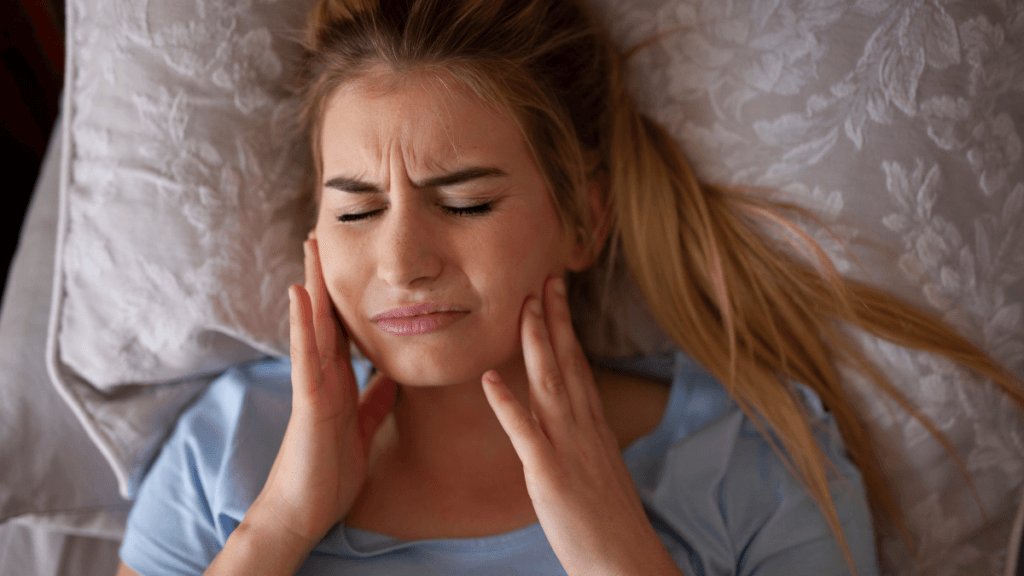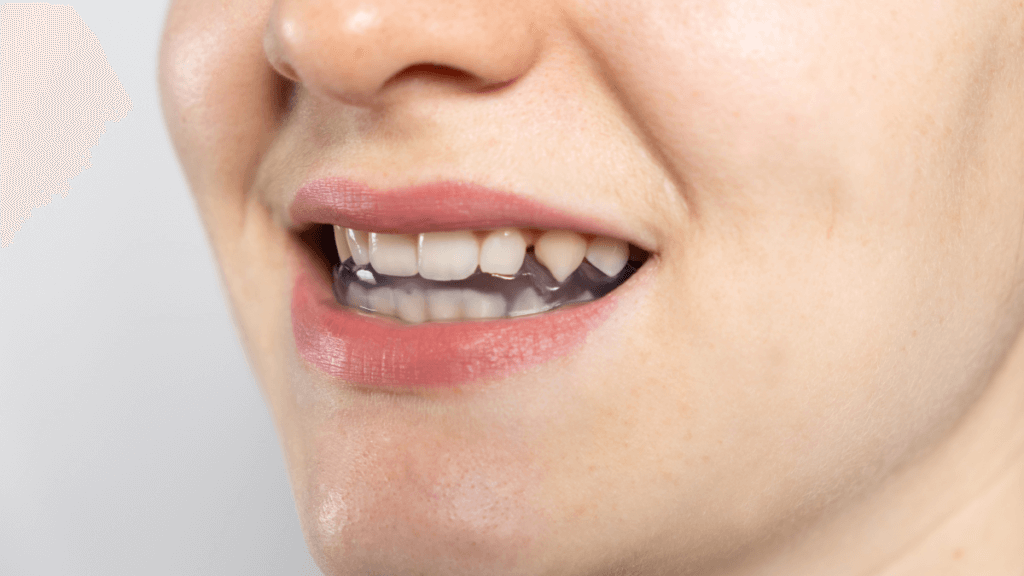Are you a notorious teeth grinder, or have you simply caught yourself clenching your jaw more than usual for no apparent reason? You might have fallen victim to a very common dental issue known as Bruxism, which affects 8 to 31% of the world’s population. In the UK, up to 10% of the population is affected by it at some point in their lives.
However, before you grind and clench even further, let us have a look at some common causes, symptoms and treatments.
What Causes Bruxism?
Bruxism is described as the involuntary grinding, clenching, or gnashing of teeth. While the exact causes of Bruxism may differ, several contributing factors in the development of this disorder include the following:
- Bruxism can be caused by psychological factors: stress, anxiety, anger, tension. Sometimes it is an unconscious outlet for emotional tension.
- Dental and jaw alignment issues: Malocclusion (misalignment of teeth) or abnormal bite patterns can lead to Bruxism as the body attempts to find a comfortable resting position for the jaw.
- Lifestyle factors: Habits like excessive caffeine intake, smoking, or alcohol consumption can exacerbate bruxism.
- Medications: Certain medications, particularly those that affect the central nervous system, may increase the likelihood of teeth grinding from occurring, too.
Typical Symptoms To Watch Out For
Bruxism most often occurs during sleep but may also occur while awake; it may even be loud enough for others to hear, especially at night while grinding!
It is, however, more than just a bit of jaw clenching and teeth grinding. Bruxism can be characterised by a variety of symptoms, including severe pain in the jaw, which may occur upon waking or may even continue to persist during the day; it can also extend upward to the temples or across the ears.
Headaches are pretty common, especially upon waking or during the day. Tooth sensitivity to hot, cold, or sweet food and drinks are also fairly common, along with earaches.
Since grinding wears away the enamel of the teeth, excessive grinding may also be one of the causes of chipped teeth, loose teeth, or worn teeth. It might even lead to tired or tight jaw muscles, especially in the morning or during stressful events. Not to mention, Bruxism can drastically affect sleep quality too.

How Bruxism Is Diagnosed
Bruxism is often diagnosed during a routine dental examination, during which the dentist notes signs such as wear on teeth and tenderness in the jaw muscles.
In more complex cases, a sleep study or evaluation by a specialist may be recommended to thoroughly assess sleep Bruxism and understand its patterns during sleep cycles.
Treatment And Management Options
Using Botox (Botulinum toxin) to treat Bruxism has become increasingly popular due to its effectiveness and success rates. When Botox is injected into the masseter muscles (the primary muscles used for chewing), it temporarily weakens or paralyses these muscles. By reducing the strength of the masseter muscles, Botox can help alleviate the symptoms of Bruxism and decrease the intensity of teeth grinding and clenching, thereby reducing associated jaw pain, headaches, and wear on the teeth. Even though Botox is not a permanent solution, its effects can last up to 6 months.
Bruxism can also be managed using custom-fit dental appliances, such as mouthguards or splints, to protect your teeth during sleep and alleviate jaw muscle tension. Stress management techniques, including relaxation exercises, cognitive behavioural therapy (CBT), or counselling, can help reduce bruxism triggered by emotional factors. Dental corrections, such as correcting misaligned teeth or adjusting dental restorations, can improve bite alignment and lessen strain on teeth and jaw muscles.

In some cases, medications targeting neurotransmitters in the brain may even be prescribed to alleviate symptoms. Of course, making lifestyle modifications, such as avoiding stimulating substances like caffeine or alcohol, practising good sleep hygiene, and adopting relaxation techniques, is also beneficial in managing bruxism effectively.
Common Myths Associated With Bruxism
Myth: Bruxism Only Affects Adults
Fact: Bruxism can affect people of all ages, including children.
Myth: Only Stressed Individuals Grind Their Teeth
Fact: Even though stress is a very common trigger, it is essential to note that Bruxism can also result from misaligned teeth or a sleep disorder.
Myth: Bruxism Is Just A Habit That Does Not Need Attention
Fact: Ignoring Bruxism can worsen your dental health and lead to more severe jaw problems. Bruxism needs attention.
To Sum It All Up
Even though Bruxism is a very common dental condition, it can have severe consequences if left untreated. Therefore, regular dental checkups are absolutely necessary to help detect the condition early, or to help monitor the condition, as it can have a serious effect on your teeth and jaw. Early intervention can play a big role in the protection of your teeth, as most people are fitted with custom mouthguards.
Similarly, Botox injections can be very effective in handling the symptoms of Bruxism, maintain optimum teeth and jaw function over time, and the earlier the better. To help reduce Bruxism from a lifestyle perspective, it is recommended to avoid hard foods and chewing gum. If you struggle with Bruxism, let us know in the comments below what is your best tip.


